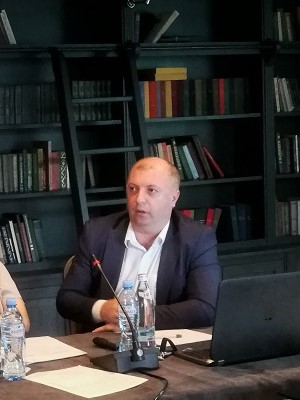UN Women supports assessment of National Statistical System from the gender perspective
Date:
In the foreword to the UN Women flagship publication UN Secretary-General António Guterres underlined that “dramatic advances in statistics, finances and policies for gender equality” are inevitable for the implementation of the Agenda’s 17 Sustainable Development Goals (SDGs).

UN Women has supported the assessment of the National Statistical System from the gender perspective in Georgia, with the aim of identifying gaps and opportunities for the improvement of methodology, collection, distribution and application of sex-disaggregated data for informed policymaking. To that end, UN Women and the National Statistics Office (GEOSTAT) held a workshop on 5 October 2018 in Tbilisi to discuss the conclusions of the assessment with relevant partners.
“Gender statistics cut across many topics,” noted Jessica Gardner, a UN Women expert who conducted the assessment. “It is important not only to have the disaggregated information to see the similarities and differences between women and men, but also to measure these the right way, obtaining unbiased information to better analyze and understand root causes of gender-based inequalities. Investing in sex-disaggregated data means investing in knowledge about society and in informed policymaking, among other things.”
Paata Shavishvili, Deputy Executive Director of GEOSTAT, provided an overview of the state-of-the-art approach to gender statistics collection and analysis in Georgia. He underlined the importance of the improved, disaggregated, comparative data as a critical source of information on the trends in society and the measurement of progress towards achieving the country’s priorities.
UN Women has been supporting the advancement of gender statistics in Georgia in close cooperation with the National Statistical System since 2014. The National Survey on Violence against Women (2017), conducted by GEOSTAT and supported by UN Women and the European Union, has significantly contributed to the creation of a baseline for the nationalized SDG 5. Support for the improved methodology and Gender Pay Gap calculation, facilitation of user-producer dialogues, and investment in wide dissemination of user-friendly sex-disaggregated statistics are a few examples of the ongoing cooperation between UN Women and GEOSTAT, with the support of the EU and the Governments of Norway and Switzerland.